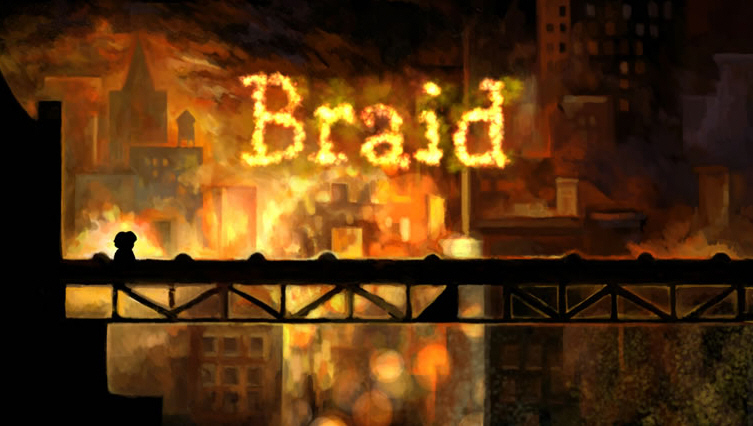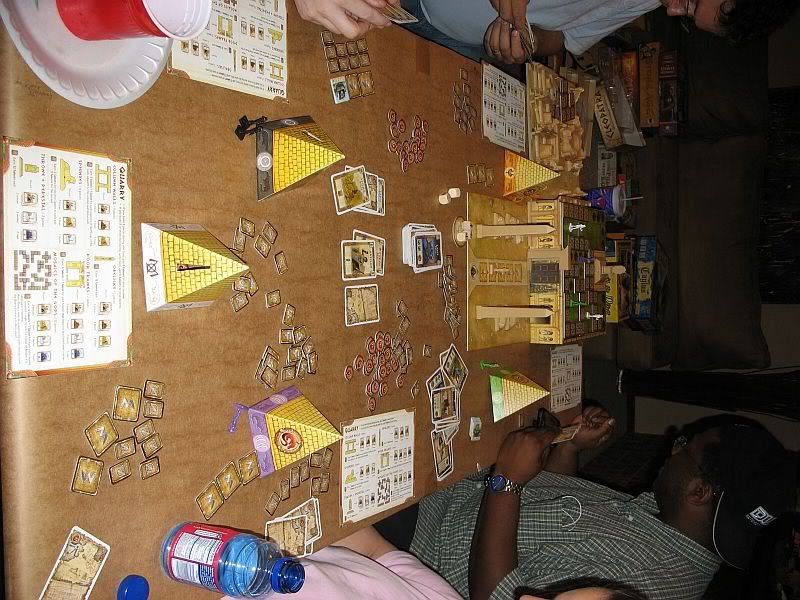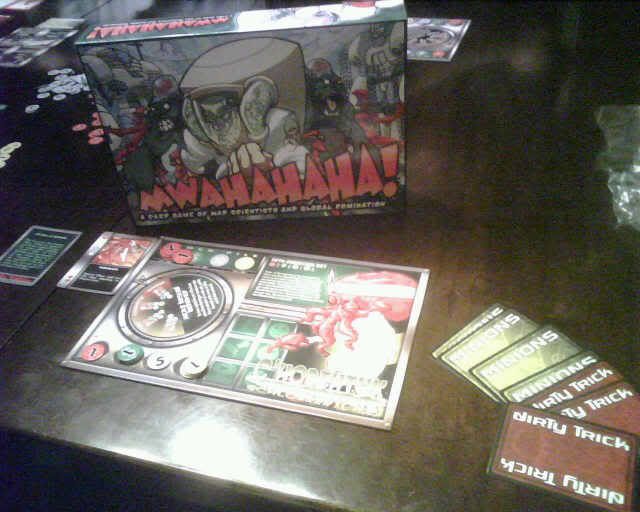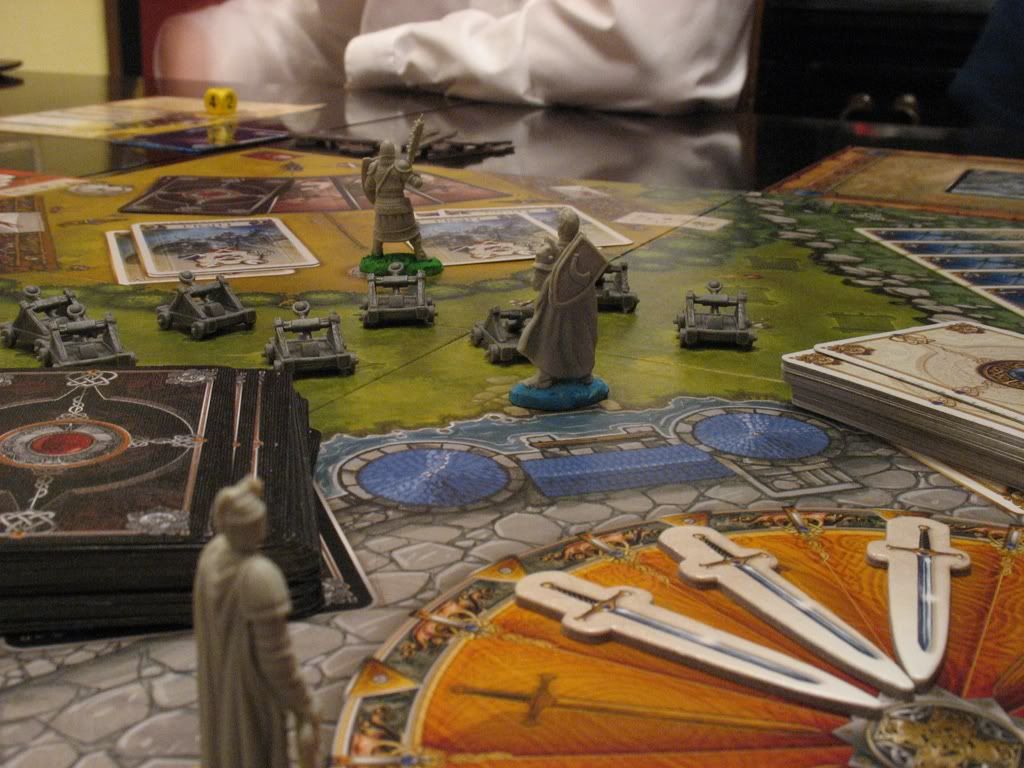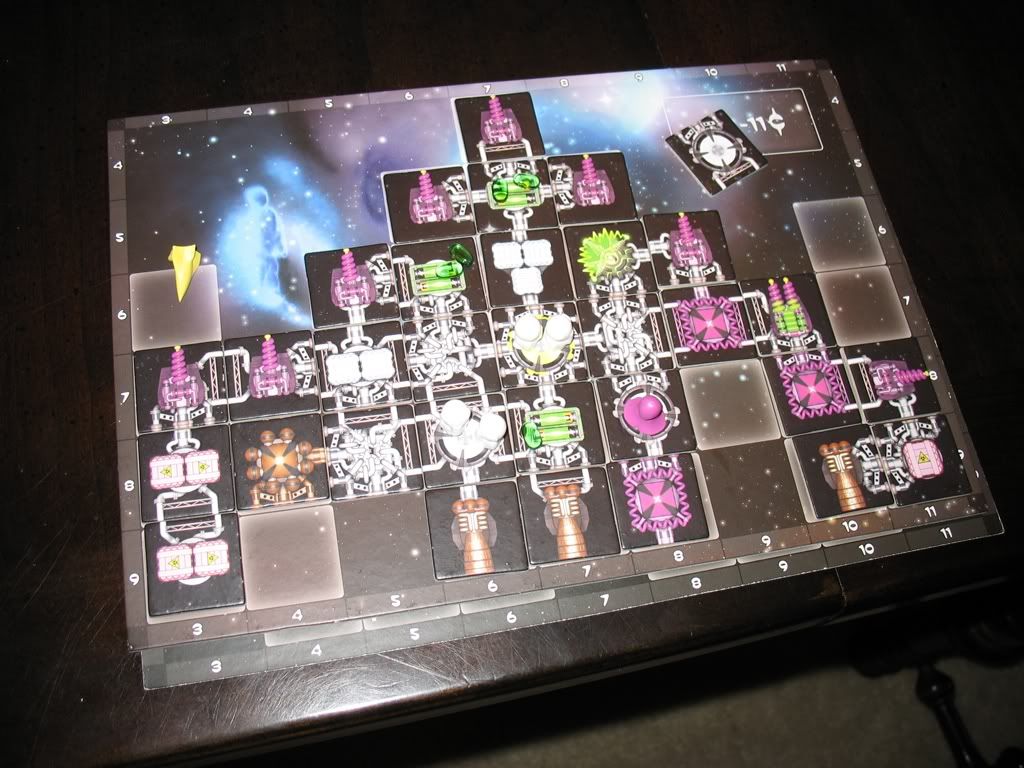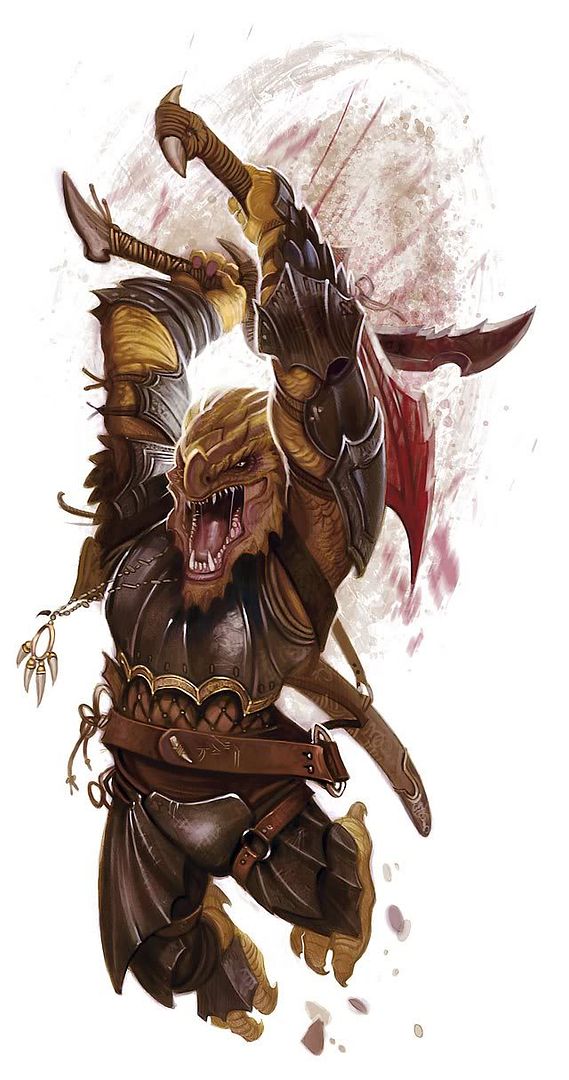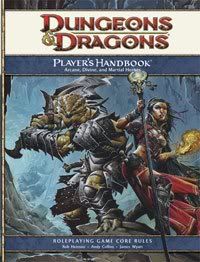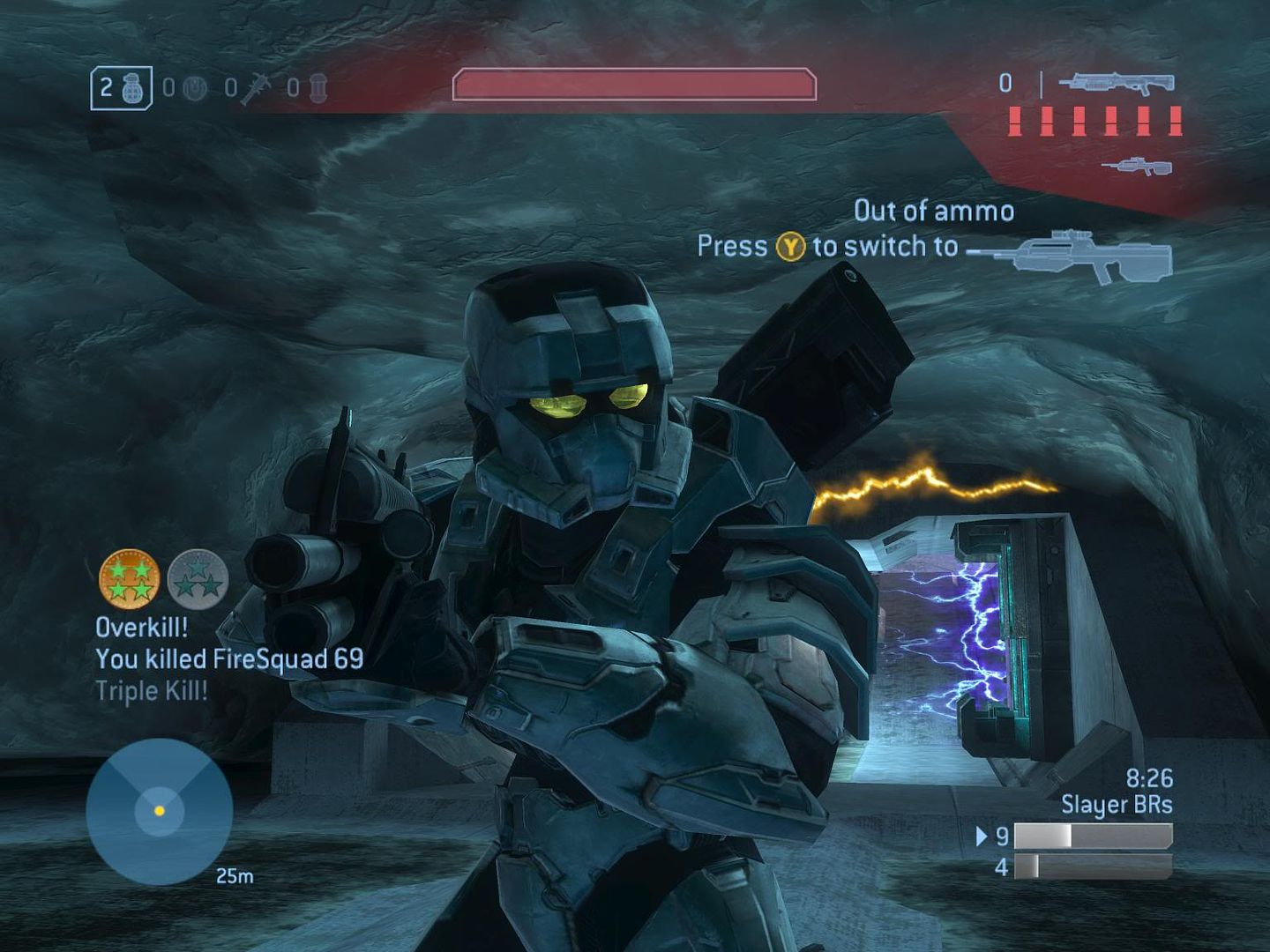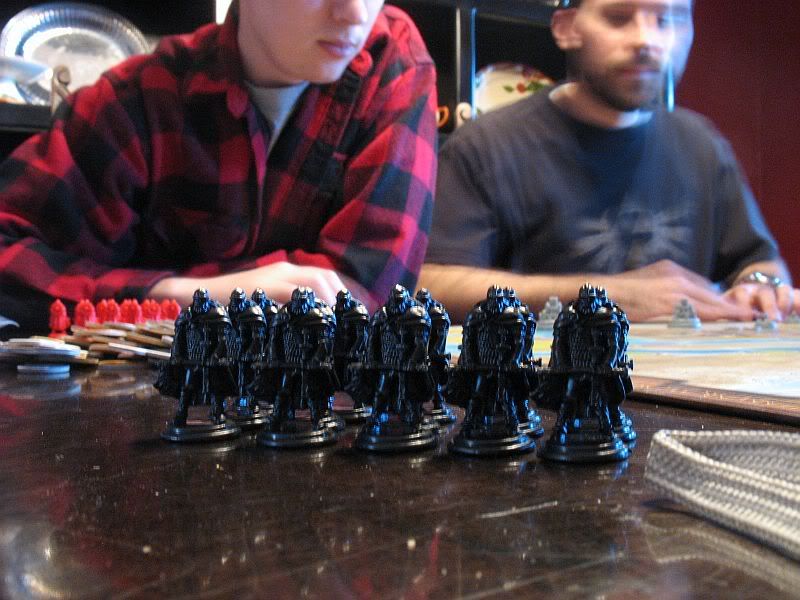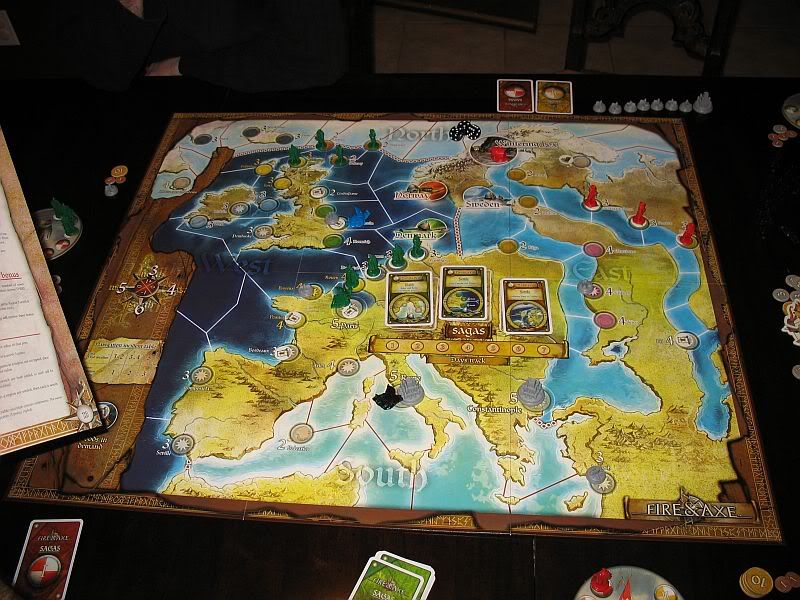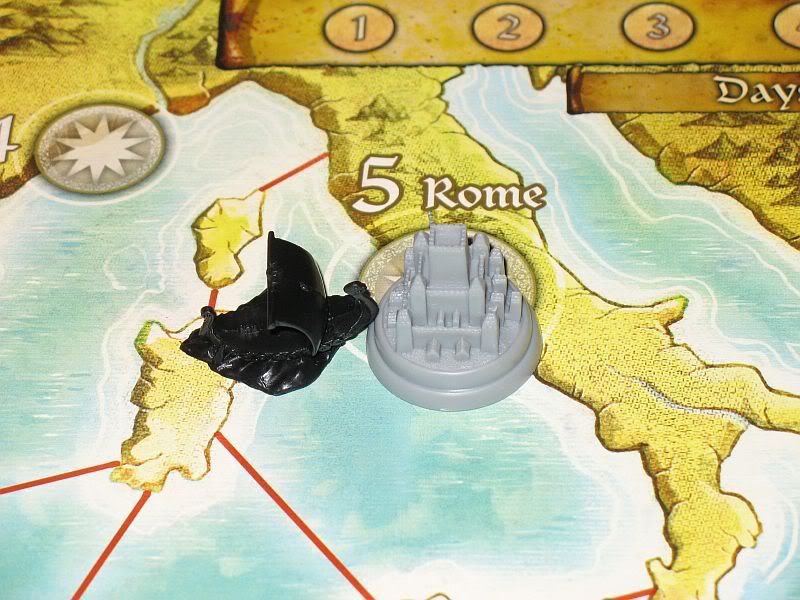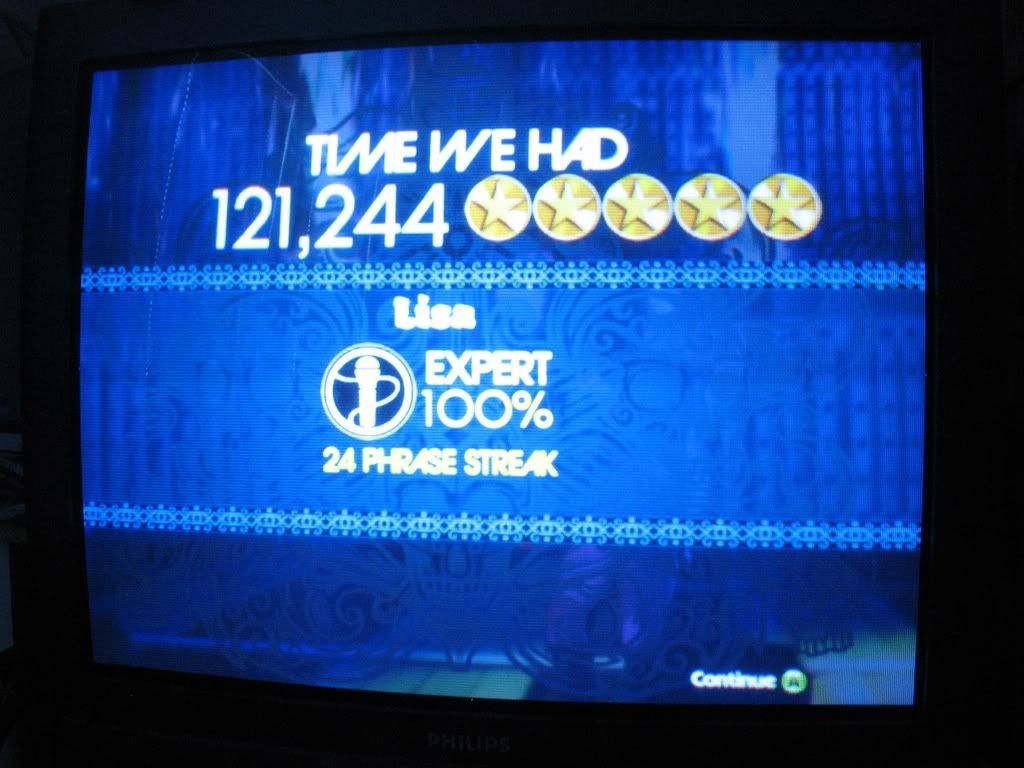
Card games hold an interesting niche in the board gaming world. Whenever a big bunch of gamers get together we sometimes run multiple games at the same time. This can cause one group to have some downtime if they finish their game and want to wait for the others to finish theirs as well. This is generally when the card games come out, as they’re generally easy to learn and quick to play.
Race for the Galaxy fits this bill nicely. It’s very amusing and can easily be played in about 20 minutes. The first time I played it took 30 minutes only because two of the three players were new and one of those new players was understandably distracted by her child. Needless to say it plays fast, but that doesn’t stop the game from having an epic scope and a much bigger feel than its lot as a card game might suggest.
Race for the Galaxy was originally supposed to be a card game version of Puerto Rico, and this is plainly obvious to any Puerto Rico player after getting the first explanation of RftG’s rules. The game adapts quite well to its new space exploration/conquest theme, and even takes the ingenious step of using undrawn face down cards from the deck as tokens and trade goods. This means that the only thing in the box is the deck of cards, a few victory point chits and the rules, and further adding to my surprise at the games level of emersion. This also makes expansions stupidly easy to insert into the main game and furthers the games replay value.
Race for the Galaxy gets an 8 of 10. This is a fantastically amusing game that easy to teach to just about anyone and even easier for a seasoned board gamer to dive into. The card art is good and the fact that is plays fast means that it can be brought out for a quick game at any time.


